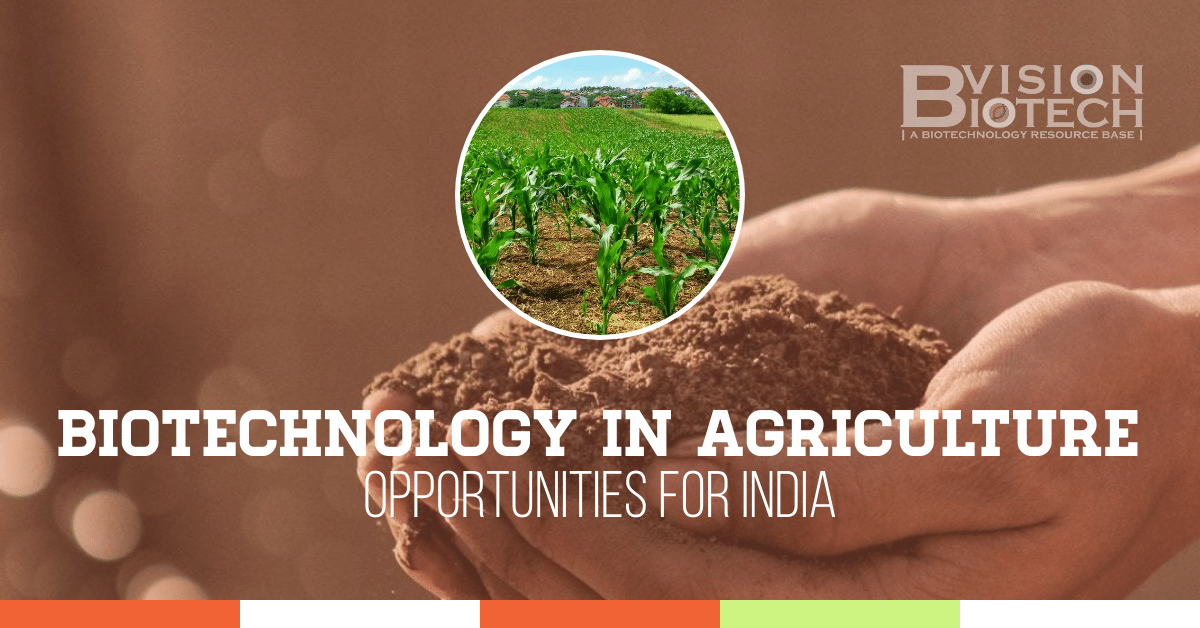Food, health, and livelihood security through sustainable agriculture is the order of the day. By 2050, India is predicted to be the most populous country in the world. The explosive population growth coupled with changing climate is threatening the food security of the country, demanding urgent corrective measures.
The crisis of food & nutrition, energy, and water are on an increasingly alarming trend. A quantum jump in food production without horizontal expansion of agriculture is possible only when food crops/animals are improved using biotechnological tools. Under the new umbrella of technological revolutions in information technology, molecular biology & biotechnology, and automation, the way of looking at agricultural productivity is rapidly changing.
A country with negative energy balance requires policies to catch up with the changing world scenario through clean and greener technologies for better environmental quality and healthy food. Thrust on quantity production is shifting towards quality production, where how and what we produce is more counted than how much we produce. Therefore the current scenario demands alignment of agricultural biotechnology research and development in the country under a common platform.
The country’s demand for quality trained personnel to foster the development in the agricultural biotechnology should be catered by various human resource development (HRD) programs of the country, which needs to be implemented through proper policy development at the national level biotech manpower planning. Linkage with industry for research, sponsorship as well as for expert faculty should be in the focus of the country while planning the HRD program for agriculture. The programs developed should be flexible, dynamic, and modular to ensure the demand-driven availability of biotech academia for teaching, research, and allied organization/industry.
The country should address its mission for a better and self-sufficient future in the food sector by sensing the need for various facets of agricultural research. Biotechnological aspects like molecular markers should be used as an indispensable tool for even conventional breeding programs. Under the new ear of various ‘omics’ biotechnological tools will be highly in use for its flourishment.
Custom made tool development for imparting specific qualities to target agriculturally important organisms is the need of the hour to protect and refine the countries’ traditional knowledge. Considering the change in climate, an inevitable change, search for new strategies to combat with, necessitates the development/identification of new genes/promoters, etc. for resistance against biotic and abiotic stress components.
Transgenics will take the central stage in solving the food security problem and it will be a common phenomenon, used by local farmers. The application of gene expression modulators to manipulate biochemical processes/pathways for desired developmental change enhanced productivity and input use efficiency will be in commonplace of routine research.
The development of tailor-made agricultural crops with added beneficial components of the customers’ (farmers’) choice will be in place through technological intervention. Considering the sequence data information explosion in the recent past, strengthening the analytical capability of the country with respect to infrastructure as well as a human resource should be of the prime mandate of the country.
The need to increase the competence in computational biology with the help of multidisciplinary marriage should be co-ordinated by the various government agencies. A system for prophylactic measures to alleviate the vagaries of nature imposed on the agricultural sector also needs to be addressed through biotechnological interventions. A proper mechanism for intellectual property rights protection needs special attention at the policy level as well as at the implementation level.
Nanotechnology, being a naïve and fast-evolving scientific field, will be used for improvement in crop production through ultrasensitive detection system for disease and pest management, nano-delivery of pesticides, vaccines, nutrients/hormones, genes, etc. Huge potential and scope of nanotechnology in food processing, nano-sensors, and nano-chips needs to be explored for the better environmental health and food security of the country. In short, the country is now at a cross-road with its full potential to be evolved as a world leader in agricultural biotechnology.


